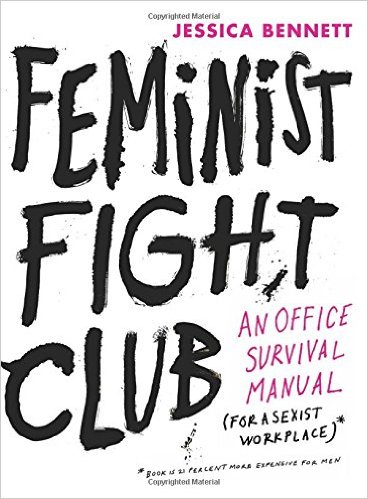As part of its ongoing effort to improve the campus climate for all, Colorado State University has become the first institution of higher education to launch a “Feminist Fight Club” on campus. Jessica Bennett, author of the book of the same name, will spend a day at CSU on Sept. 25 to help launch the initiative with workshops, a fireside chat, and a book signing.
Although the book is written as a guide for fighting subtle sexism in workplaces, Bennett was looking for ways to bring FFC to colleges and universities. CSU will now serve as a pilot and model for other universities across the country.
The mission statement for CSU’s Feminist Fight Club is:
The Feminist Fight Club at Colorado State University provides an inclusive space for community, growth, learning, and support for all members. We seek to develop our skills in identifying and addressing problematic behaviors that disadvantage women and other marginalized groups in the workplace by building upon the research and strategies presented in the book, Feminist Fight Club. We also focus on holding ourselves accountable to one another as we model and practice behaviors that foster a campus culture and climate that supports the success of all students and employees. To this end, we commit to support one another through honest reflection, courageous dialogue, and collective action.
Organic process
Bringing the Feminist Fight Club to campus has been an organic process. The book was selected for the Women Reading @ CSU book club in Fall 2016. Initial interest meetings began in December, and from there monthly Feminist Fight Club meetings have provided members with concrete strategies for how to advocate for and support themselves and others when they encounter sexist behavior. A small group of undergraduate students created a student Feminist Fight Club to provide support for students in campus contexts, especially classrooms.
Feminist Fight Club at CSU
The launch will be a full day with several events on Sept. 25. Workshops
10:30-11:30 a.m. — Book Signing with Jessica Bennet; paperbacks will be available for purchase. Outside Lory Student Center Ballroom D
1-2:15 p.m. — Fireside Chat with Jessica Bennett and Cori Wong, with Q &A. Free and open to the public; Lory Student Center Ballroom D
2:30-3:30 p.m. — Feminist Fight Club Workshops; require prior registration online.
For move information, go to The Women and Gender Collaborative website.
The book is a primary resource in the Man: Educate Yourself program, which invites men across campus to understand their roles and responsibilities in creating cultures of gender equity. There have also been several workshops held across campus to introduce the community to the practical application of “fight moves” that can be used to interrupt and challenge subtle sexism.
Cori Wong, director of the Women and Gender Collaborative, provided a copy to CSU President Tony Frank, to introduce him to the purpose of Feminist Fight Club and get his approval to pursue a collaboration with Bennett.
Diagnosing and combatting problems
Diagnosing a problem begins with being able to identify and name it. Feminist Fight Club is backed by research that defines problems — such as “manterrupters” — and provides tactics — called “fight moves” — to combat subtle sexism, like enlisting “boast buddies” to help give attention to the value of women’s work and contributions.

“I hope bringing the Feminist Fight Club to campus will provide shared language and resources for everyone to be able to identify subtle sexism and feel equipped to intervene or change their own practices and behaviors,” says Wong.
Wong notes that the book is only a starting point for the campus community and that there are many ways the Feminist Fight Club at CSU is intentional about continuing to make this an intersectional and inclusive effort.
“The fight moves are really to create a culture of support, where people have each other’s backs and speak up on behalf of one another to create a more inclusive environment,” she says. “That means that we challenge subtle sexism, but also racism, transphobia, and other forms of bias that harm members of our community.”
Adapted to campus community
Adopting the strategies from the book requires taking some liberty with how fight moves are practiced to make them appropriate for the needs of the campus community. For example, in the workshops that will be offered during Bennett’s visit, facilitators will share “fight moves” for various audiences on a range of issues, such as to support working parents, strategies to promote careers in STEM, and concrete tips for men who wish to fight subtle sexism.
What Wong likes best about Feminist Fight Club Is that the book is practical and accessible to both men and women, and it provides concrete examples and advice for individuals to bring about changes in their own lives.
“People identify with what’s named as ‘problematic behaviors’ whether they’ve experienced it firsthand or recognize that they might be the ones manifesting those behaviors,” she says. “The book invites self-reflection, which is one of the most powerful tools for how to change a culture that impacts one’s professional and personal life. “